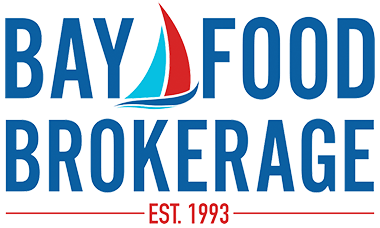
Food supply chain issues are still causing challenges for food manufacturers and retailers. This is resulting in shortages on orders and empty grocery store shelves for many products.
But, there are several things food manufacturers can do to avoid shortages. In this post, Bay Food’s Director of Deli & Emerging Business Erin McCulloch-Crume shares helpful tips for manufacturers.
Be proactive
As a first step in helping to prevent shortages, food manufacturers should keep an eye on food supply chain issues that may affect production. This includes the ability to get raw materials, like product ingredients and packaging.
For example, the war in Ukraine has made it hard to get sunflower oil and wheat. Egg and chicken prices are surging because of an outbreak of avian flu in the U.S. In Europe, high milk prices are raising the costs of imported dairy products. And, climate and pest problems in Canada and France have affected manufacturers’ ability to source mustard seed.
“The best course of action is to think proactively, imagining what-if scenarios,” Erin said. “If you know certain raw materials may be hard or impossible to get, be prepared to pivot. Plan accordingly and get creative.”
Diversify ingredients and suppliers
One way manufacturers can get around food supply chain issues is by diversifying their ingredients and suppliers.
“The moment you find out about a crop shortage, consider whether you can reformulate your product to substitute an ingredient,” Erin said. “For example, if you usually use sunflower oil, see if you can use olive oil instead.”
Also, identify multiple suppliers for your ingredients. That way, if one runs out, you have others that may be able to deliver. And, look globally, not only at suppliers in the U.S.
“Don’t have just one mustard seed supplier, have two or three,” Erin said. “Have them all vetted in advance and set up in your system. That way, you can order from them immediately if your go-to supplier is out of an ingredient you need.”
Prepare to pivot packaging
When it comes to working around food supply chain issues to avoid shortages, manufacturers should also prepare to getting creative with packaging.
“Have a contingency plan when it comes to packaging,” Erin said. “For example, if your container usually uses in-mold printing, have a back-up plan that involves blank tubs and stickers. These are quick and easy to print if getting film ever becomes a problem. Have the artwork designed and a vendor lined up so you can act quickly if you need to pivot.”
Also, know that if you may need to substitute an ingredient in a product (as described above), you can include it in your ingredient deck on the packaging even if you haven’t reformulated yet.
“According to the FDA, as long as it doesn’t change the nutritional information, products can overstate ingredients listed on the package,” said Erin.
This means if a product currently uses sunflower oil but may need to switch to olive oil in the future, list both in the ingredient deck. This will prevent having to reprint all the packaging later if you need to reformulate.
Ask for more lead-time
Current food supply chain issues and logistics challenges are delaying the process at every stage. So, manufacturers should be adjusting their production and delivery timelines. Sometimes, retailers can help with this process to alleviate shortages.
“Ask retailers to increase your lead-time,” Erin said. “If they agree, that gives production teams more time to make the product needed. And every day counts.”
Talk to your broker
If food supply chain issues are creating an area of concern, talk to your retail food broker right away.
“Your broker should help you come up with a strategy and plan for addressing the challenges that may be coming,” Erin said. “And, they’ll help you communicate that to the retailer. Transparency and communication are the most important things manufacturers can maintain with their retailers.”
The above tips can help manufacturers navigate food supply chain issues and avoid shortages. But, sometimes shortages still happen. When it does, Erin has advice for how food manufacturers can best maintain relationships with retailers.
“Offer retailers short-term solutions and options, even if that means suggesting other suppliers until you can get products back on shelves,” she said. “This is about long-term thinking versus short-term thinking. Retailers will appreciate honesty and the supplier acting as a valued partner.”
Looking for a retail food broker to help you navigate food supply chain issues? Contact us today to learn how we can help.
